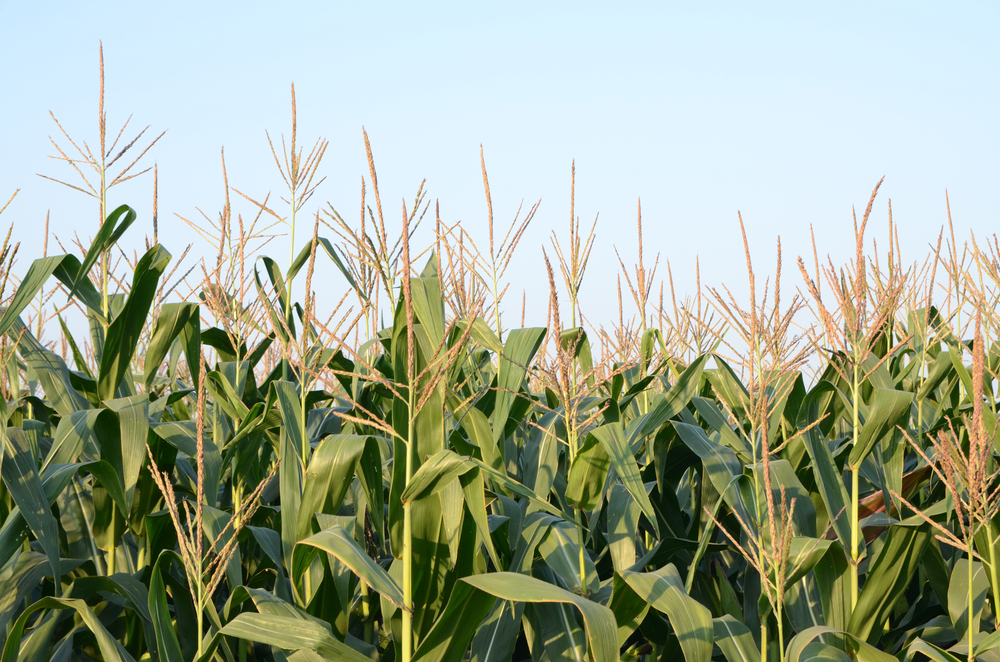But what exactly does this mean for the world?

Sulfur emissions, largely from coal plants, were pinpointed as a major cause of acid rain in the 1980s and 1990s.
Changes to the Clean Air Act and other environmental regulations lessened the problem of acid rain, but now, a new study from the University of Colorado, Boulder finds that there’s a new big producer of sulfur in the environment: Agriculture.
Sulfur is acidic, and when it falls as rain and makes its way to sources of water like rivers and lakes, it can do serious damage to the environment. But it’s also pretty useful for farmers.
Though nitrogen is, as AgWeb puts it, “the foundation of high corn yields,” sulfur is also vital for the crop. Over the past few decades, an increasing number of fertilizers have included some form of sulfur, and it’s been sold separately as a fertilizer in its own right. Sulfur helps with developing chlorophyll, which is why sulfur-deficient plants may appear yellow, and it also assists the plant in its ability to metabolize nitrogen, its main fertilizer. It’s become quite popular, especially with row crops like corn, in part because of the lessening of acid rain. Farmers used to get sulfur for free, from the sky. Now, they have to add it themselves.
The new study from Colorado looked at how much sulfur was being applied in three different crops, sort of iconic for their region: Corn in the Midwest, sugarcane in Florida, and wine grapes in California. They found that levels of sulfur are rising as it’s added to cropland. In those agricultural areas, the level of sulfur was dramatically higher than it was even at the peak of acid rain, but now it’s a localized increase, rather than the broad-scale sprinkling of acid rain.
This is all concerning, but the big question, researchers say, is what the effects of excess sulfur are on the soil and environment. Research in the wetlands of Florida indicated that excess sulfur is linked to the production of methyl mercury, which causes developmental and reproductive problems in both humans and wildlife. There’s an increasing body of research finding that farmers may need to add sulfur to their crops to make up for the lack of acid rain, but there’s hardly any research about how that could affect the environment.
The Colorado researchers say it is vital to start monitoring and investigating this use of sulfur, to figure out proper amounts and whether there is an adverse effect on soil microbes, plants, animals, and human health.
Excessive sulfate fertilizers creates high sulfates in the plant tissue. Commercial fertilizers that are not biologically based creates an excess.
I wonder if planting in ancient native methods would help with natural addition of sulfur. I recently had to study high content sulfur vegetables which were cauciferous (sp?) ..broccoli, cauliflower, asparagus. The same week I also saw articles that taught Native American methods for mixed crop rows due to nutrient exchanges. stalk support for corn and next another plant resolved groundcover for warmth and weed control.
Is this a situation where concentrating on a single crop requiring sulphur is the problem or is it something that must be added across the board?
To Brad’s point, they didn’t use a single that may be more predisposed to sulpher needs however, big crops e.g. sugar cane, wheat and corn have massive acreage…therefore the dispersion or “runoff” of “extra” sulpher production which is extends to methyl mercury…in the air is concerning..especially if the MM composition is proven as more damaging to plant life/health and of course animals/humans. t
We have an economically viable sulfur replacement, All Phase, composed of ingredients deemed by the EPA as to pose a minimal risk to human health and the environment and where every ingredient is FDA approved as food additives. It is exempt from requirements of EPA residue tolerances. Efficacy at a low rate of 0.33 lbs/acre had the same results in controlling powdery mildew in strawberries as 5 lbs/acre of micronized sulfur (Cal Poly Strawberry Center Field Trial, 2022). At that rate cost is comparable to sulfur. University field trials at higher rates have provided better results than sulfur. If growers… Read more »